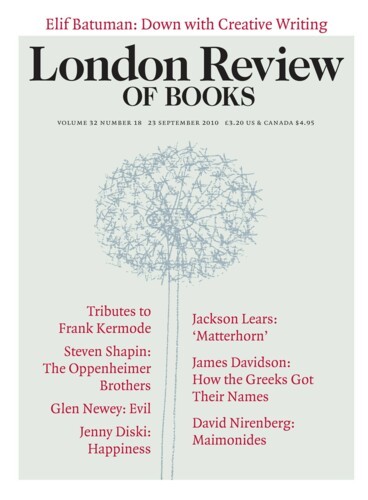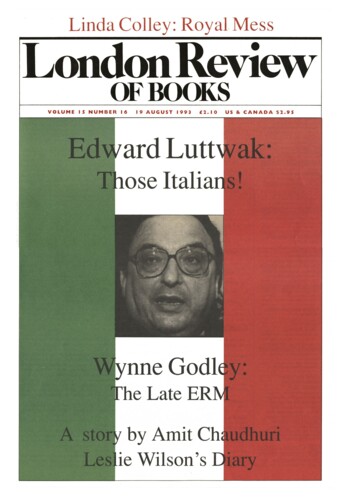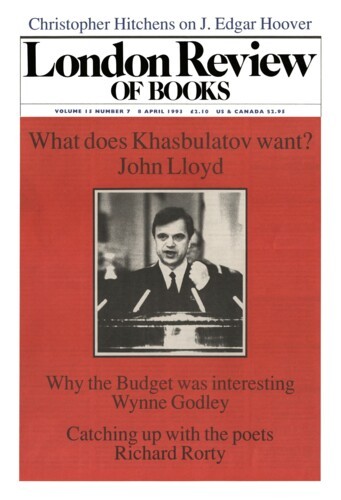Memories of Frank Kermode
Stefan Collini, Karl Miller, Adam Phillips, Jacqueline Rose, James Wood, Michael Wood and Wynne Godley, 23 September 2010
Stefan Collini writes: ‘Yes, I’d like that very much. That really would be something to look forward to.’ Frank was already weakened and wasted by throat cancer, but my suggestion that we go to watch some cricket at Fenner’s did seem genuinely to appeal to him. There wasn’t much to look forward to by this point. On the appointed day the weather was kind, and...





